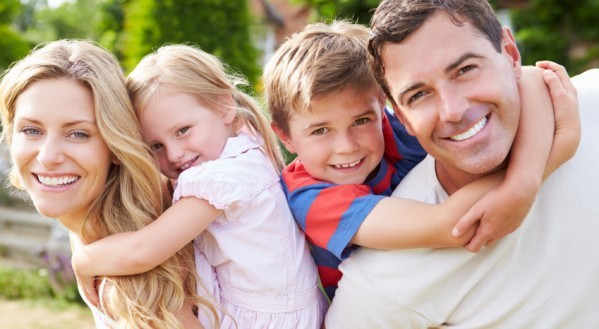Child & Family Therapy

Infant Mental Health and Early Childhood Development
Why is it important to understand and pay attention to infant mental health and early childhood development? This is the most significant period in one’s life where the foundation is set up for how one will develop socially and emotionally. During the first five years, the most complex organ, our brain grows more than any other time in life – 85% of brain is developed by age 3; and it goes up to 90 by age 5. We all know that infants and children rely on their primary caregivers for basic needs and these basic needs require the presence of safe, emotionally attuned, and nurturing relationships. These types of “secure attachments” protect toddlers from biochemical effects of stress mechanisms. In other words, nurturing environments, or the lack of them, affect the development of brain circuitry. Brain plasticity, which refers to the capacity of the nervous system to change its structure and, its function over a lifetime, occurs most rapidly during the first 3 years of life; if the experiences are not given the connections die.
Child Parent Psychotherapy (CPP)
CPP is an intervention model for children aged 0-5 who have experienced at least one traumatic event and/or are experiencing mental health, attachment, and/or behavioral problems, including post-traumatic stress disorder (PTSD). The treatment is based in attachment theory but also integrates psychodynamic, developmental, trauma, social learning, and cognitive behavioral theories. Therapeutic sessions include the child and parent or primary caregiver.
“CPP engages parents and primary caregivers as the most powerful agents of healthy development in young children. By harnessing parental love and devotion to their child’s well-being, CPP seeks to retrieve and create gratifying experiences of relationship that become engraved as new memories to modulate fear and promote trust in the child’s and the parents’ sense of each other and of themselves. – Alicia F. Lieberman and Patricia Van Horn
Trauma Focused Cognitive Behavioral Therapy (TF-CBT)
Trauma-Focused Cognitive Behavioral Therapy (TF-CBT) is an evidence-based treatment for children and adolescents impacted by trauma and their parents or caregivers. TF-CBT is highly effective at improving youth post-traumatic stress disorder (PTSD) symptoms and diagnosis. TF-CBT is utilized to address many other trauma impacts, including affective (e.g., depressive, anxiety), cognitive and behavioral problems, as well as improving the participating parent’s or caregiver’s personal distress about the child’s traumatic experience, effective parenting skills, and supportive interactions with the chil
Infant Massage
There are four main categories of benefits of infant massage and they include: interaction, stimulation, relief, and relaxation.
- Interaction includes promotion of bonding, promoting secure attachment, verbal/non-verbal communication, one-to-one quality time, pre-language communication skills, undivided attention, feeling respected, using all of the senses, love, tolerance, nurturing touch, early contact with both parents, empathy, imitation.
- Stimulation of circulatory system, digestive system, hormonal system, immune system, lymphatic system, nervous system, respiratory system, vestibular system (coordination and balance), language development, improved learning ability, muscular development and tone, growth, elimination, sensory integration, connections between neurons (stroking promotes and quickens the growth of the myelin sheath), mind/body awareness.
- Relief can help with gas and colic, constipation and elimination, gastrointestinal (digestive) cramps, excess mucus, growing pains, muscular tension, teething discomfort, disorganization of the nervous system, sensitivity to touch, physical and psychological tension, softening of the skin.
- Relaxation may be demonstrated by improved sleep patterns, helps normalize muscle tone, increased flexibility, increased environmental coping mechanisms, regulation of behavioral states, being calm, improved ability to calm oneself (also known as self-regulation), reduction of stress levels and stress hormones, higher levels of relaxing or anti-stress hormones (such as oxytocin and serotonin), lower levels of stress hormones (such as cortisol and norepinephrine), higher levels of dopamine, less hypersensitivity, less hyperactivity, enjoying positive ‘time-out’.
Developmental Assessments & Treatment of Special Needs
Ruzanna has specialized training to work with children 0-10 who have special needs including:Autism Spectrum Disorder, Down Syndrome, Seizure Disorder, Speech Delay, Cerebral Palsy, and ADHD. She has used Stanley Greenspan’s approach and model of the DIR and Floor-time with her work with special needs. Ruzanna is trained on administering different types of developmental assessments. These include the Mullen Scales of Early Learning, the Bayley Scales of Infant and Toddler Development, Battelle Developmental Inventory, and the Functional Emotional Assessment Scale. Along with these standardized assessment tools, she is knowledgeable with the following screening tools: PEDS, HELP, and ASQ/ASQ-SE. These tools are designed in order to assess and or screen for any developmental delays, in the areas of speech, gross and fine motor skills, as well as social emotional development and the age range includes 0 until 8 years of age. Ruzanna also was the Assessment Program Specialist at the Child Development Institute for about three years, where she trained new interns on how to administer assessments, including report writing and worked with a multidisciplinary team, consisting of speech therapists, occupational therapists, and physical therapists.